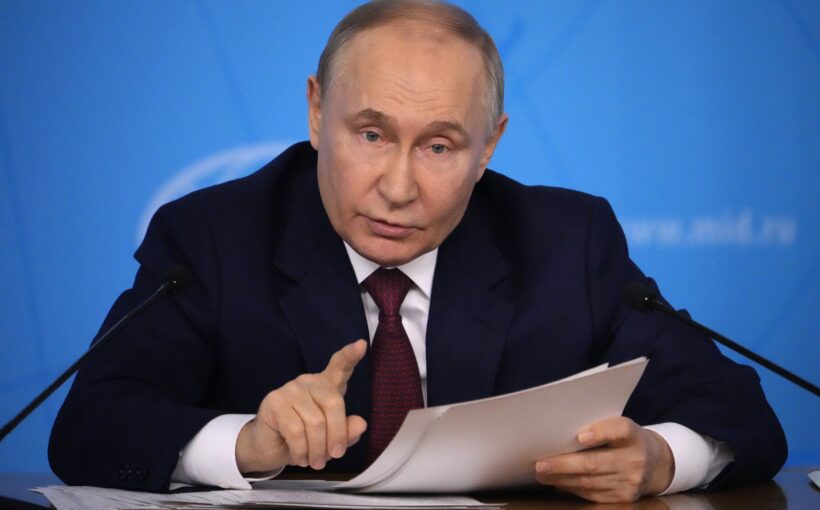BRUSSELS — The European Union will blacklist dozens of oil and gas tankers helping Moscow earn billions from illicit fossil fuel sales after officials finalized a deal during talks on Wednesday.
It’s the EU’s 15th sanctions package targeting Russia since it invaded Ukraine nearly three years ago. The new penalties will bar an additional 52 tankers from EU ports, raising the total to 79 in a bid to rein in Russia’s “shadow fleet,” a group of aging ships trading sanctioned fuel behind murky ownership structures.
The package will also penalize individuals and companies accused of helping the Kremlin secure banned technologies. One EU diplomat said the restrictions will hit goods “contributing to Russia’s war machine” that are laundered to Russia through a foreign country.
“The package adds more persons and entities to the already existing sanctions list, and targets entities in Russia and in third countries other than Russia that indirectly contribute to Russia’s military and technological enhancement through the circumvention of export restrictions,” the Hungarian Council presidency said in a statement.
The deal means the package can be approved when EU foreign ministers gather next Monday. Still, the new sanctions are just a preview of bigger fights to come next year. On Tuesday, 10 EU countries issued a joint letter — seen by POLITICO — calling for tough new restrictions on Russian natural gas, aluminum and nuclear fuel as part of a bid to drain the Kremlin’s war chest.
Linguistic compromise
The 15th sanctions package was delayed last week after Latvia and Lithuania used their veto powers, arguing the EU should end a clause that lets businesses continue operating in Russia.
The provision, first introduced in December 2022, has already been extended three times, which critics say has given companies sufficient time to divest. However, countries including Germany, France and Italy were reluctant to reopen the discussions.

Latvia and Lithuania dropped their objections after negotiators agreed to add non-binding language advising EU companies to leave Russia, according to five officials familiar with the talks, speaking anonymously to describe the closed-door negotiations.
According to a document seen by POLITICO, the new text reads: “EU operators should consider winding down businesses in Russia and/or not to start new businesses there.”
One of the diplomats described the outcome as “a compromise.” But a second bluntly noted: “Materially, this changes nothing.”
The situation left some frustrated.
“There is a lack of political willingness, despite the third year of war approaching,” another envoy said. “There are vested interests of several European countries, big economies, who are still continuing their businesses in or with Russia. This is cynical. Even beyond cynical, as it has direct costs to Ukraine and continues to undermine our collective security.”
Baltic countries neighboring Russia say that weak sanctions enforcement creates a need for expensive and resource-intensive border checks along the shared frontier. Hours before the deal was struck, European Commission President Ursula von der Leyen announced a major new funding package to help front-line member states.
“They are securing our common borders. So today we’re making available €170 million to support their efforts,” she said.



